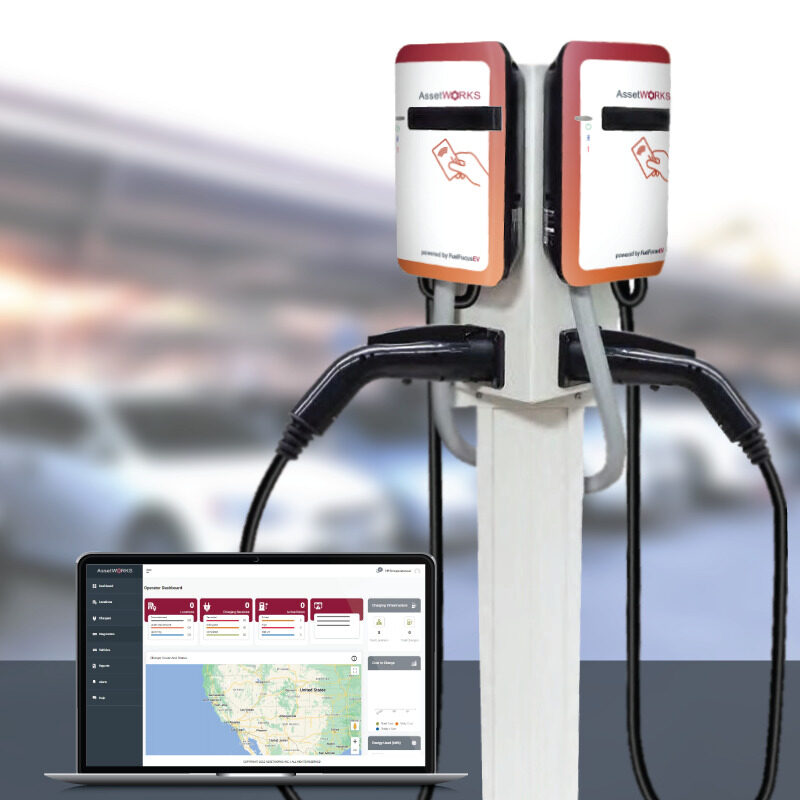- Home
- Products
- FleetFocus
- FuelFocus
- FuelFocusEV
- KeyValet
- Asset Analytics Platform
- Predictive Analytics
- Enterprise Asset Management (EAM)
- Mobile Technology
- Electronic Logging Device (ELD)
- GPS
- Field Ticketing
- Driver Behavior
- Driver Vehicle Inspection
Fleet, Vehicle, & Asset Management
Fuel & EV Charge Management
GPS Management
- Industries
- Resources
- About Us
- Home
- Products
- FleetFocus
- FuelFocus
- FuelFocusEV
- KeyValet
- Asset Analytics Platform
- Predictive Analytics
- Enterprise Asset Management (EAM)
- Mobile Technology
- Electronic Logging Device (ELD)
- GPS
- Field Ticketing
- Driver Behavior
- Driver Vehicle Inspection
Fleet, Vehicle, & Asset Management
Fuel & EV Charge Management
GPS Management
- Industries
- Resources
- About Us
EV Fleet Charge Management Software
Electrify your future
Nearly three-quarters of fleet managers agree the appetite for EVs in operational fleets is growing. To meet the changing demands of fuel consumption, you need the proper resources to stay ahead of industry trends.

A smooth transition to sustainability
FuelFocusEV offers full integration with charger network providers and hardware so you can seamlessly manage operations and plan future growth.

Leverage your EV data
It is challenging to gauge the success of your EV operations without data visibility. Gain a thorough understanding of your EV data through automated out-of-the-box reports. FuelFocusEV manages electric stations and obtains accurate charge session transactional data to provide valuable insight into energy consumption within your fleet.
Effortless integrations
Managing energy, fuel, and charge management as a collection is essential to get the most out of your operations. This robust integration allows you to track electric energy distribution in tandem with traditional and alternative fueling. Charging session events are integrated automatically to eliminate manual data entry and errors.


Rely on expert execution
Fleet electrification is challenging. Let us help. Our team experts advise your team through site walks at planned charging areas, accessibility requirement assessments, and facility modifications. Our hardware specialists work with your team to evaluate different EV equipment makes and models to support long-term strategy.

Electrify your motor pool
For many fleets, motor pools serve as a logical first step for electrification. Make sure you’re making the most out of your motor pool through powerful integrations.

See the big picture with GPS/Telematics
Electrifying your fleet is only the beginning. With integrated GPS/Telematics, you can analyze all vital fleet data, including location, driver behavior, and utilization.
Ready to See More?
Schedule a demo to learn how FuelFocusEV software can elevate operations.
Additional Features
Sync data with EV charging hardware providers’ hardware and software technology
Transaction data on date and time of charge session, actual time of charge versus plug-in time, and kilowatt per hour cost
Visibility of station port status
Automatic import of private and public charge transactions
Accurate calculation of vehicle total cost of ownership
Multiple out-of-the-box reports to analyze overall energy consumption
Webinar
How to Electrify Your Motor Pool
In this on-demand webinar, the AssetWorks team shares important technology updates and how fleets can avoid the common pitfalls of motor pool electrification, including best practices for vehicle prioritization and dispatch strategy.
Want to learn more about EV charge management software?
Simply fill out the form to get in touch with the AssetWorks team.
Additional Resources
Learn more about the AssetWorks CMS
Our Charge Management Software solution was designed for fleets by fleets. Watch the video to learn more!
Frequently Asked Questions (FAQs)
Charge management software (CMS) is a system designed to manage and optimize the use of electric vehicle (EV) charging infrastructure. It intelligently monitors, controls, and ensures the efficient utilization of charging stations, helping organizations achieve cost and energy efficiency. CMS also provides data-driven insights, reporting, and system control to streamline EV operations in growing fleets.
Charge management software, such as AssetWorks’ FuelFocusEV, includes the following key features:
- Real-Time Monitoring and Reporting: Tracks charger activity, energy use, and vehicle charging status in real time.
- Intelligent Load Management: Offers load balancing to prevent electricity demand surges and optimize energy consumption.
- Data Integration: Integrates charging data with fleet management systems for comprehensive reporting and analysis.
- Energy Cost Optimization: Monitors energy rates and automatically adjusts charging schedules to leverage off-peak electricity tariffs.
- Remote Access: Allows fleet managers to monitor and control charging stations remotely to enhance operational flexibility.
FuelFocusEV simplifies the transition to an electric fleet by offering seamless integration between EV charging data and existing fleet management systems. It provides:
- Transparent cost tracking for fuel and energy use, ensuring budgetary control.
- Real-time insights into vehicle charging status and energy consumption, aiding operational planning.
- Integration with fleet data to align vehicle assignments, driver schedules, and charging needs.
- Clear analytics and reporting for compliance with sustainability goals and regulations.
This makes deploying and managing an EV fleet more streamlined and data-driven.
FuelFocusEV employs intelligent load management to improve energy efficiency. Features include:
- Load Balancing: Distributes power among charging stations to avoid overloading circuits.
- Dynamic Scheduling: Aligns charging with off-peak electricity rates to minimize costs.
- Energy Usage Insights: Provides comprehensive data on energy consumption trends, enabling smarter energy management strategies.
By optimizing energy use, FuelFocusEV ensures a cost-effective and sustainable charging solution for EV fleets.
FuelFocus leverages advanced software integration to simplify the management of EV charging stations. Fleet managers can:
- Access real-time tracking of active chargers, idle chargers, and vehicles in queue.
- Prevent overuse and underuse of charging stations through automated usage monitoring.
- Set custom parameters for priority vehicles to ensure critical fleet operations stay on schedule.
- Identify inefficiencies and improve charger usage with comprehensive reports on station performance.
- Manage charging sessions remotely, reducing the need for onsite intervention.
This comprehensive management approach reduces downtime, improves station availability, and supports the operational efficiency of EV fleets.
Fleet / FuelFocusEV
QUICK LINKS
WHAT WE DO
QUICK LINKS
SOCIAL LINKS
Copyright 2025 AssetWorks, Inc. | All Rights Reserved.
